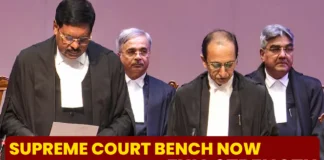
News Desk, New Delhi, 14-May: A Will in India is your key to deciding who inherits your home, savings, or digital assets like YouTube revenue after you’re gone. Without one, family disputes or legal battles can disrupt your legacy. This concise 2025 guide covers what a Will is, succession, partition suits, and tips to plan your estate smartly. Let’s dive in!
What is a Will?
A Will in India is a legal document where you, the testator, specify how your assets—property, money, or social media earnings—are distributed after death. Governed by the Indian Succession Act, 1925, it can be handwritten, signed, and witnessed, no lawyer needed. In 2025, Wills are vital for digital assets too.
Fact: Only 10% of Indians have Wills, leaving ₹50,000 crore unclaimed!
Why Get a Will?
A Will prevents family fights over your assets, especially in India’s joint families. It secures funds for kids, appoints guardians, and manages digital revenue. Without it, courts decide, often against your wishes.
Benefits
- Stops disputes.
- Protects dependents.
- Controls digital assets.
- Saves legal costs.
See more at The Legal Observer’s official website..
How to Make a Will?
Creating a Will in India is simple but must be legal.
Requirements
- Be 18+, of sound mind, and free from coercion.
- Write, sign, and have two non-beneficiary witnesses.
Steps
- List assets (property, savings, digital).
- Name beneficiaries.
- Appoint an executor.
- Sign with witnesses.
- Store safely.
Registering under the Indian Registration Act, 1908, is optional but strengthens validity. Check The Legal Observer’s News.
What is Succession?
Succession transfers a deceased person’s assets to heirs. Per the Indian Succession Act, 1925:
- Testate: Will dictates distribution.
- Intestate: Laws like Hindu Succession Act, 1956, divide assets, possibly against wishes.
Learn more at The Legal Observer’s Insights.
What is a Partition Suit?
A partition suit is a court case to divide joint or inherited property when heirs disagree. Common in Hindu Undivided Families (HUFs), it’s governed by the Hindu Succession Act, 1956. Coparceners (sons, daughters) can file to claim shares, but it’s costly and slow.
Why File?
- Disputes over ancestral property.
- Need to separate joint shares.
Watch insights at The Legal Observer’s YouTube.
No Will? What Happens?
Without a Will, intestate laws divide assets, leading to:
- Family conflicts.
- Unclaimed assets.
- Creditor claims.
- Digital account risks.
Courts may choose guardians, ignoring your preferences.
Avoid These Mistakes
- Vague terms: Be clear.
- Not updating: Revise after life changes.
- Ignoring digital assets: Include social media.
- No witnesses: Two are mandatory.
Can You Change a Will?
Yes, update with a codicil or new Will. Revoke by destroying the original.
Wrapping Up
A Will in India ensures your assets—from homes to YouTube earnings—go where you want in 2025. It avoids disputes, succession issues, and partition suits. Write your Will today! Visit The Legal Observer or follow us on Twitter for more.
In House Development | The Legal Observer





